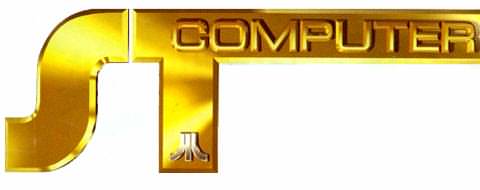
Stateside-Report (English)
Walter Bagehot was an English social scientist. He was an editor, and he was a respected literary critic. Perhaps, if he had lived a century later then he did, he would have been an Atari user as well. For Walter has been quoted saying "The greatest pleasure in life is doing what people say you cannot do." And this, as we all know, is what Atari computing in the 21st century is about. We (Atari users) get pleasure in seeing our "obsolete" hardware and software perform modern tasks.
We get gratification browsing through complex web pages with packages such as the Draconis Internet Suite. We get satisfaction in completing our important term papers using high quality DTP software such as Papyrus or Tempus. And yes, we are proud to tell our friends and colleagues that we did it on a computer that was around when the Berlin wall was. We are Atari users, and we are a dying breed. But hopefully not for long.
With the arrival of the "new concept" (http://www.milan-computer.de/de/news/news032000a.html) for the Milan II, interest in the still unreleased machine is more apparent here then ever before. Savvy computer shops such as Paradise Web Designs and Consulting (http://www.paradisewebdesign.net) see the potential of the Milan II and desperately want to carry and support the machine. This wiliness to support an Atari machine has not been evident here for years. But even before the release of the Milan II, dedicated programmers have continued to release innovative software solutions.
Sector One just released a new version of FalcAMP (http://falcamp.atari.org), a modern, fully GEM, real-time MP3 player that allows stock falcons to play the popular music format. This program is an example of an "impossible" task that is now possible. Another example is Draconis 1.7; with increased Java script support and better HTML rendering in The Light Of Adamas, even stock ST's can be used for modern day web browsing. These two aforementioned programs are examples of the Atari spirit: beating the odds, doing the impossible. However, this "spirit" can only do so much. Computers are tools, and tools are only useful when they can achieve the job that they are intended to do. In this respect, the Atari platform is falling behind. Although we are slowly adopting new technologies, such as USB support in the Milan II, MP3 playing in FalcAMP or Aniplayer, and even PDF viewing with Ghostscript, we are still very limited. In order to survive and prosper as a platform we must act much faster on new technologies and standards then we have in the past. I know it, you know it, and ST-Computer magazine knows it. ST-Computer is even offering to sponsor new hardware and software projects with awards of up to 1000 DM. Clearly, Thomas Raukamp and the staff of ST-C know what the Atari spirit is; but they are also smart enough to know that it alone will not carry our platform to where we want it to be. And where do we want it to be?
For starters, we need to utilize all of the standards that we can. Although many, such as Macromedia Flash, are propriety and will probably never grace Atari screens until the success of the Milan II occurs, open standards such as Cascading Style Sheets (CSS) and SSL (Not just in Mint-Net) are mandatory and should be supported. We are blessed as a platform to have many talented programmers who are capable of implementing these standards; they just need the motivation. An interesting event happened when Jan Daldrup and I first started the MagiC Game Contest ’99 (http://www.place2be.de/mgc/contestd.htm). Programmers that have been silent for years contacted us. "Serious" coders who have never written a GEM game before contacted us. Companies eager to support the contestants with donations contacted us. It was a domino effect, and hopefully the prizes that ST-C are now offering will have the same affect on the Atari community. Like many other aspects of life, motivation is the key that opens the door. And with the Milan II on the way, the door is already partly opened. We have now reached a point in time where we should give it our all or throw in the towel. To the users: You are lucky to have the opportunity to be able to contact the author(s) of the programs that you use. Take advantage of it. Send in bug reports, comments and suggestions; and be as helpful as you can. We are not all programmers, but we are all equally important. And to the programmers: Do not loose your motivation, for even though there are times that you believe you are not appreciated or needed, without your new programs and/or updates we have nothing to look forward to. Our "tools" are becoming dull, and we need to sharpen them.
Bengy Collins